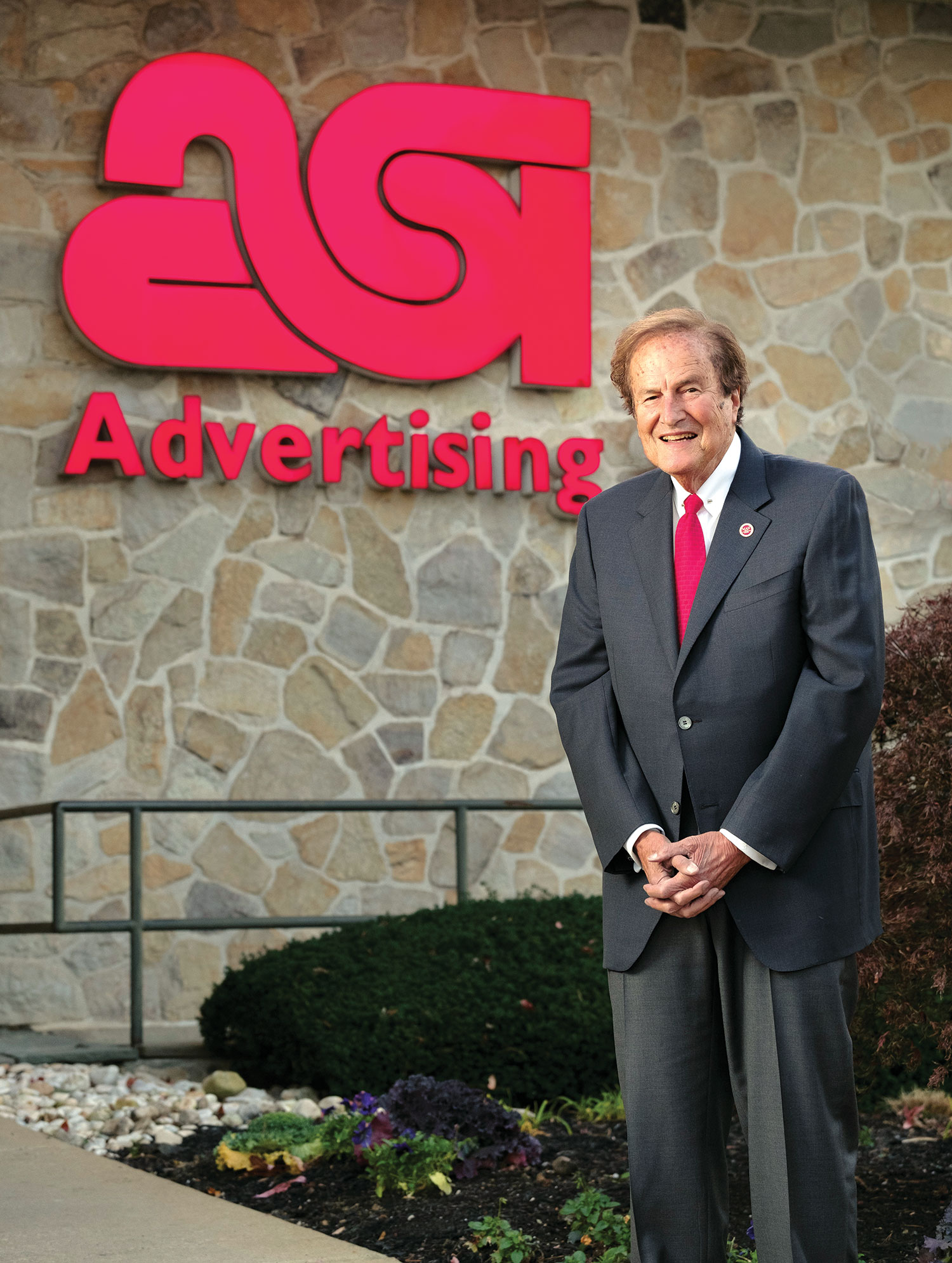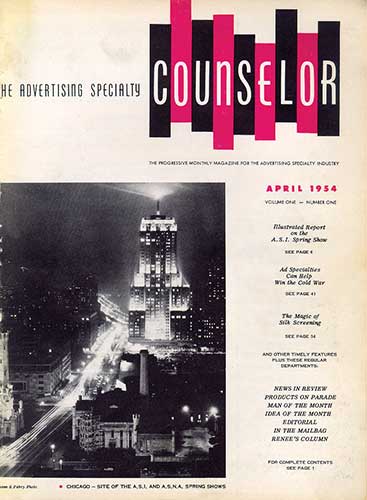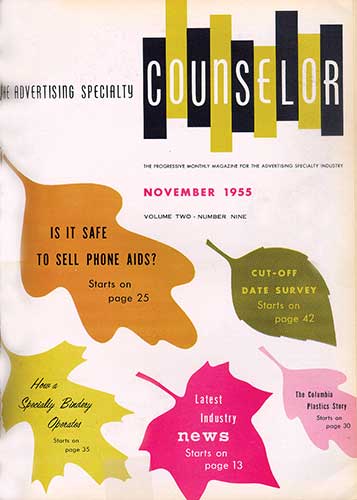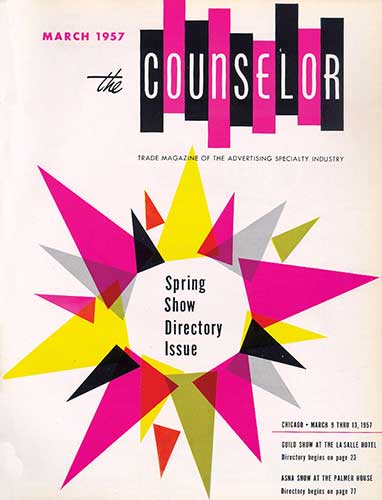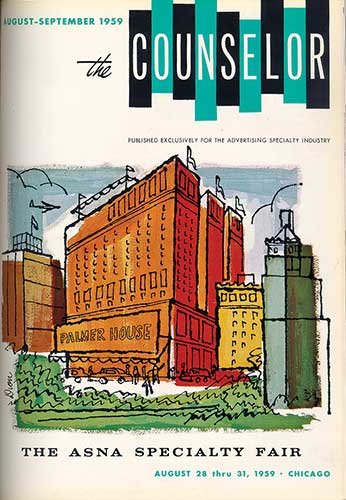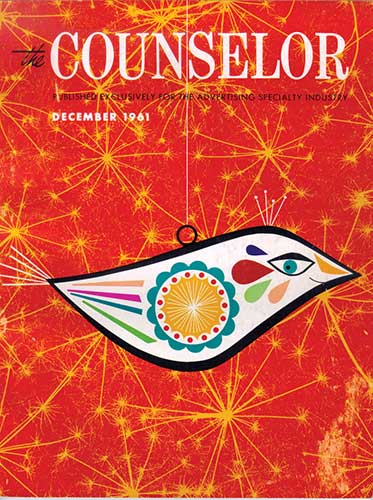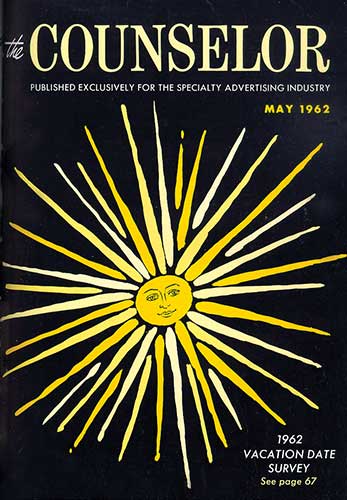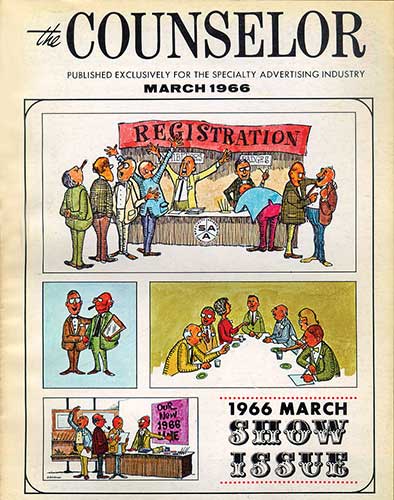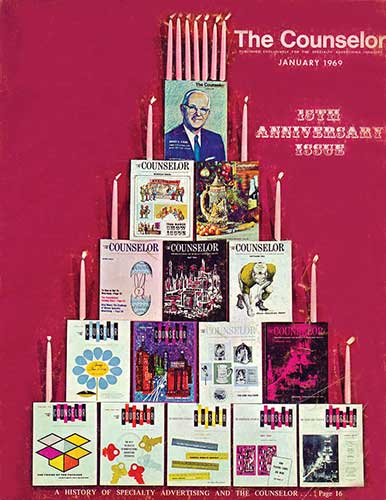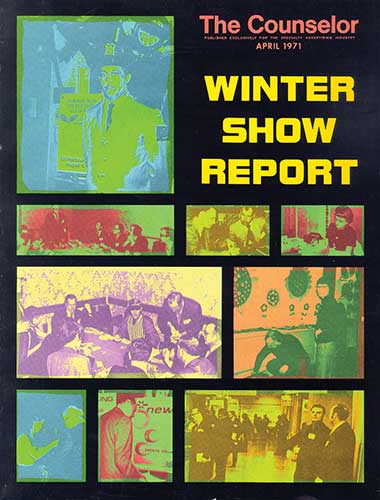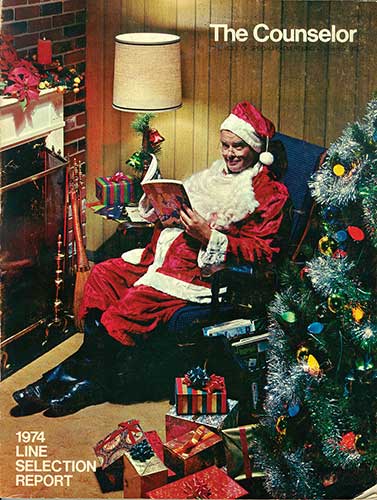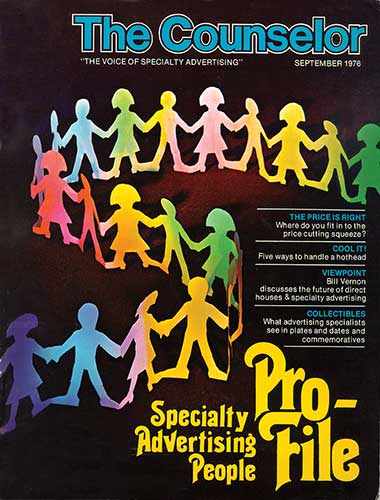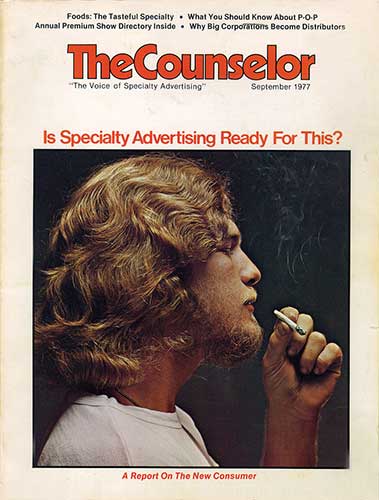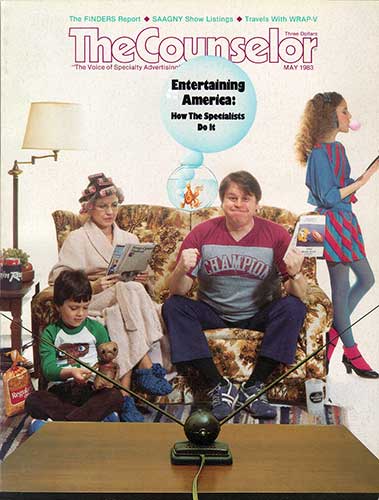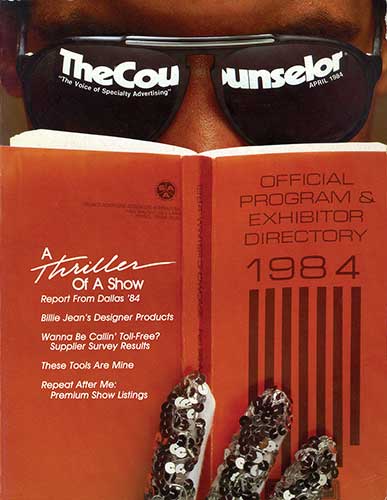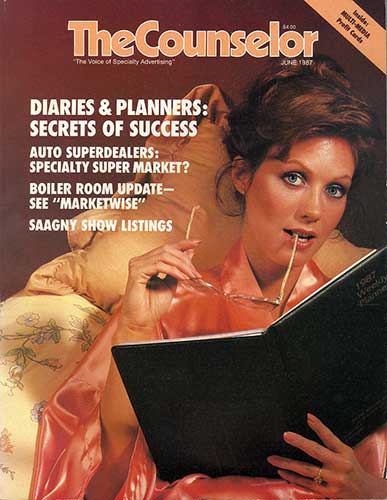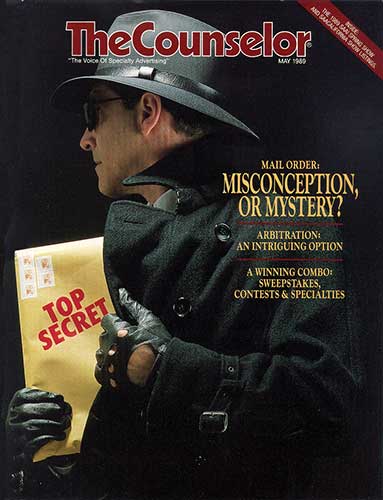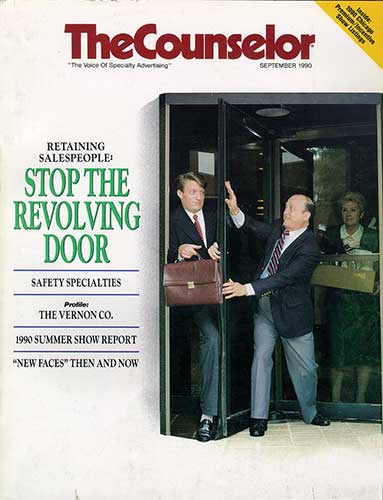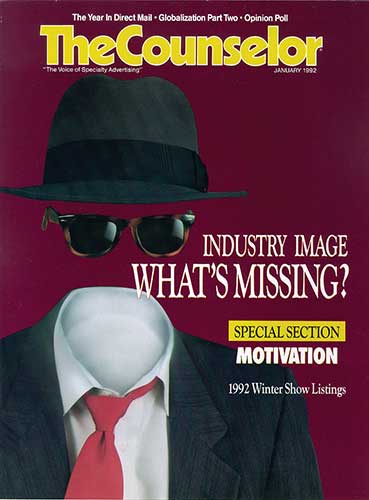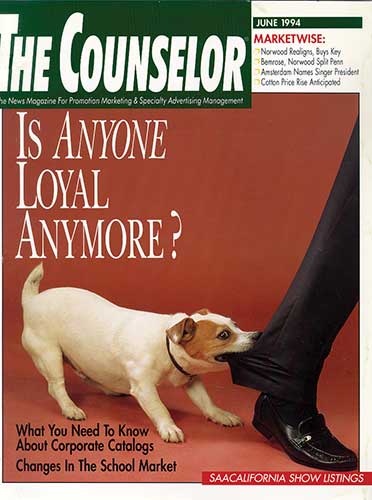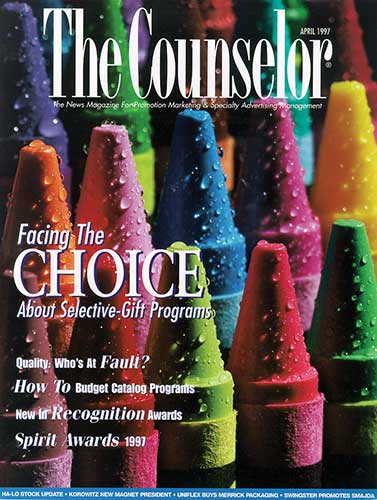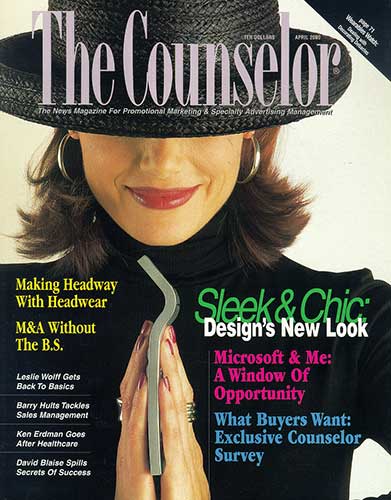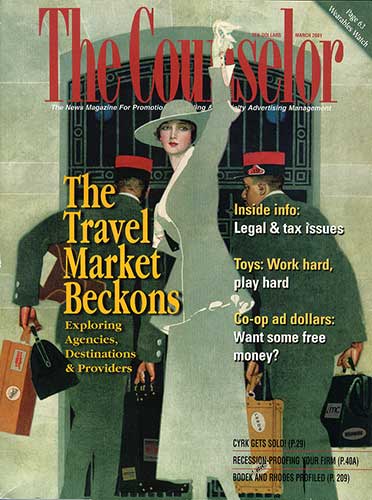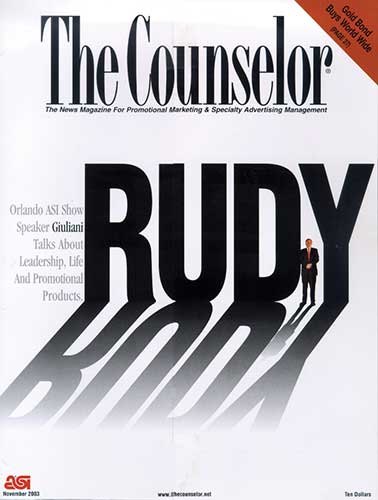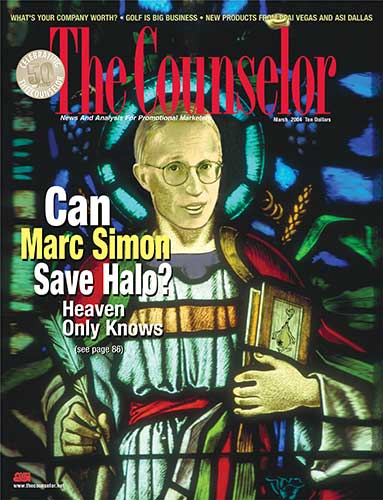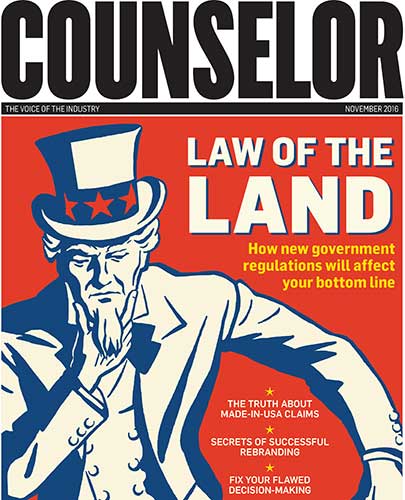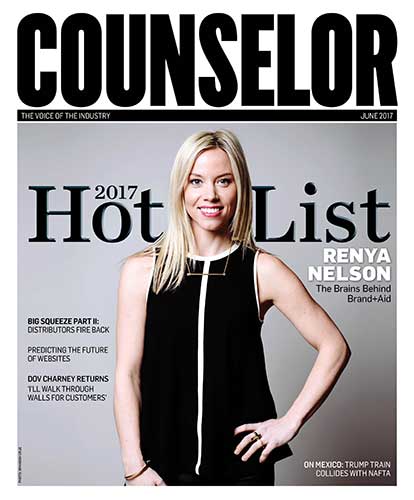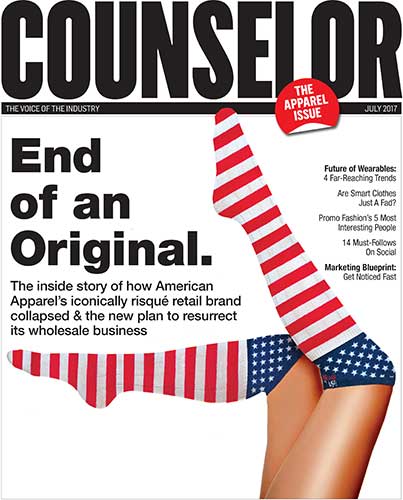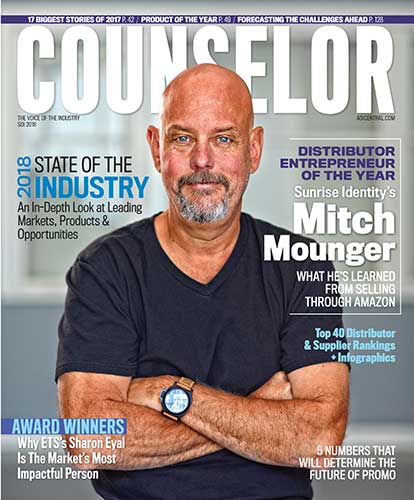Counselor: How did you get started selling in promotional products?
Norman Cohn: I actually started as a distributor, working summers as a senior in high school. I went around to local people selling food gifts. And the reason I got into that was that my uncles had a waste materials/scrap metal/new equipment business and I walked in one day and saw they had a huge pile of Smucker’s preserves boxes. I asked them what they were doing with all this. They said, “We’re giving them out as gifts.” On the way home I asked my father – since we were in the grocery business and bought from Smucker’s – why we don’t sell those? So I wrote the Smucker’s factory in Ohio. They told me that they appreciated our grocery store business, but they couldn’t sell us gifts because a company in Iowa City, IA, called Bankers Advertising (asi/131650) was their exclusive distributor. It was too bad, I thought, but it didn’t stop me from putting together some food gifts. And so my father and I went out in a local area offering companies, for their employees or their customers, food gifts. I later decided to try to make some extra money in college so I could have a nice car and take a girl out for a date. Instead of going to college in the traditional nine-month period, I waited and didn’t go in the fall. I went out and sold gifts, and then in the winter, spring and summer I went to college.
C: But you didn’t really know about the promotional products industry just yet, right?
NC: True. After about two or three years of selling like I did, I discovered this industry. I was curious what Bankers did. I found out they sold logoed products and merchandise. I also discovered that in the industry there was an association, at that time called ASNA – Advertising Specialty National Associates. They had a trade show in Chicago. I thought it would be great to have a lot of companies like Bankers sell our food gift products, so we applied to be a supplier member selling food gifts. They turned us down because nobody offered food gifts. This was an industry that sold primarily calendars and ballpoint pens.
C: You didn’t give up though.
NC: No. We waited a year or so. Joe Segel in Philadelphia helped start a competitor to ASNA which was called the Advertising Specialty Guild. They allowed people to sell food gifts, so we sold at their first show at the LaSalle Hotel in Chicago. We became a supplier in this industry and then we started buying other suppliers. At one time, our family was the largest single supplier in the industry. Now, don’t be too impressed, because the industry was a lot different then. Eventually, we decided being the organization that was the central part of the industry, ASI, would be better than making gifts.
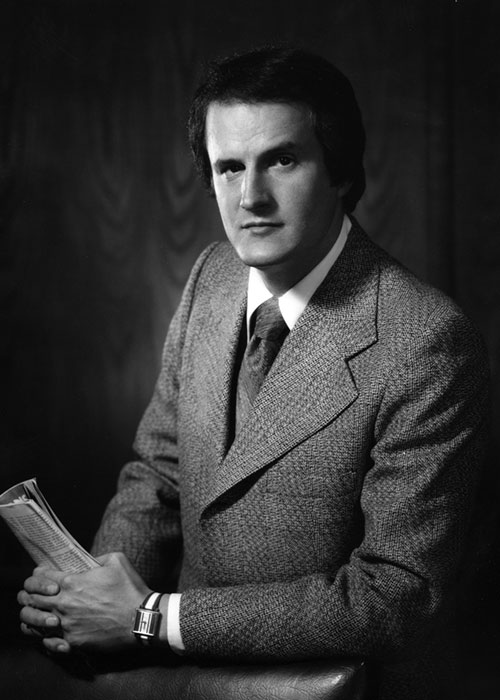
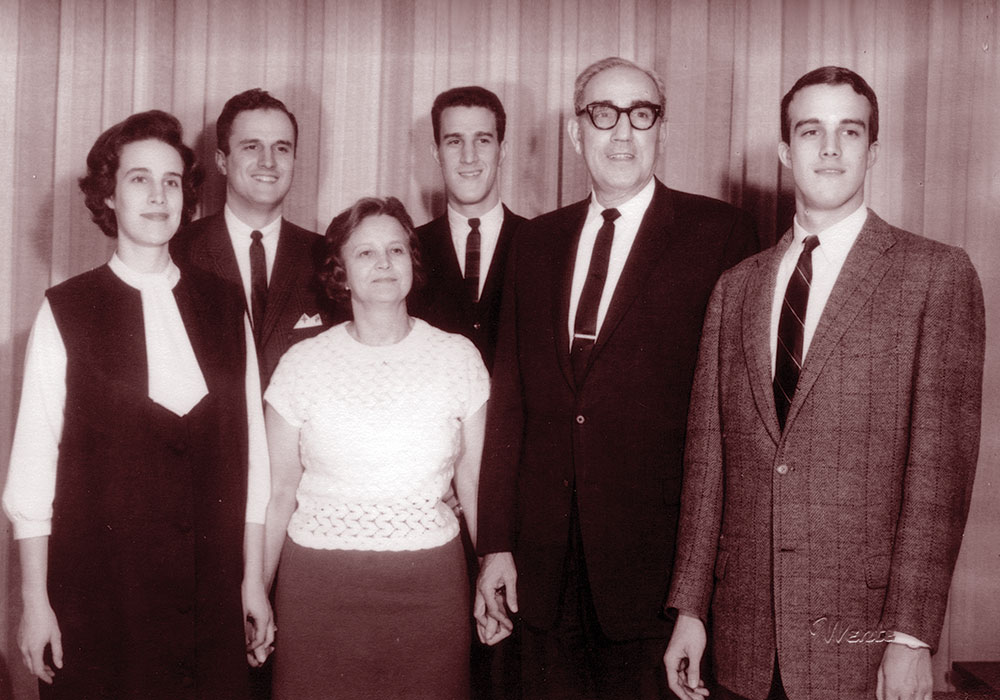
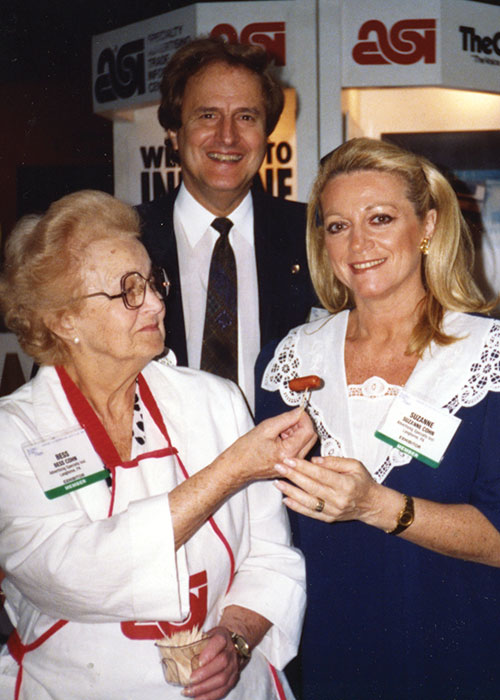
Middle picture: Cohn (second from left) with his parents and siblings
Right picture: Bess Cohn, Norman’s mother and the person for whom Counselor’s Humanitarian award is named (left) and Norman’s wife Suzanne
C: How did you get introduced to Counselor?
NC: Joe Segel and a couple of his key employees published the Register, which was at that time a phone book of the industry. Then they decided they should publish a magazine. The only industry magazine at the time was one backed by ASNA. It so happened that I was acquainted with a person called H. R. Gross, a congressman from our area. Now you might say, so what? Well, ASNA was being investigated by the Federal Trade Commission. The Counselor wanted to run a story that may not have been the most favorable story about the current association; they wanted me to get information from Gross. And that’s how I got to know Joe. From there, good things happened.
C: What was Counselor like early on?
NC: Well, the old Counselor was modest and didn’t have professional writers. The issues were thin magazines. It was as good as, probably better than, the only other competitive magazine, which was produced by an independent publisher in California.
C: Have you ever written for Counselor?
NC: Yes, I used to do a column in the early days, mostly on travel and restaurants. I wasn’t a particularly good writer, but I had some experiences I thought were pretty good, and they needed editorial to put between the ads. So every couple of months they’d run an article I wrote.
C: What was the industry like when you started?
NC: When we came into the industry there were fewer than 3,000 distributors. There were about five giants back then. Brown & Bigelow (asi/148500) was the largest by far. In those days, the giants in the industry were direct houses. They manufactured most of the things they sold. Brown & Bigelow sold a huge number of calendars and designed specific items. One of their great calendars was the Dion Quintuplets, which most people today have never heard of. But they were the first five identical siblings known to be born simultaneously (and survived to adulthood), and Brown & Bigelow was smart enough to get the license for them. They put out a different calendar every year showing a photo of the growth of the quintuplet sisters and it was a huge success.
C: Over the years direct houses became less important. Why?
NC: The companies back then had an exclusive with their salespeople. In other words, if you were selling, you couldn’t get products from anywhere else. Salesmen didn’t know where to look for other similar items, so once you became successful in the industry, you needed to stay with the company you were with because if you left them, you had nothing to sell and no place to go. But then ASI came out with a numbering system. We researched the people who had logo type products, calendars, pens, etc. We gave salespeople who had been bound to their parent organization a chance to go out and become independent. So many of the companies that are successful today were founded by former salespeople of one of the four or five large direct house organizations.
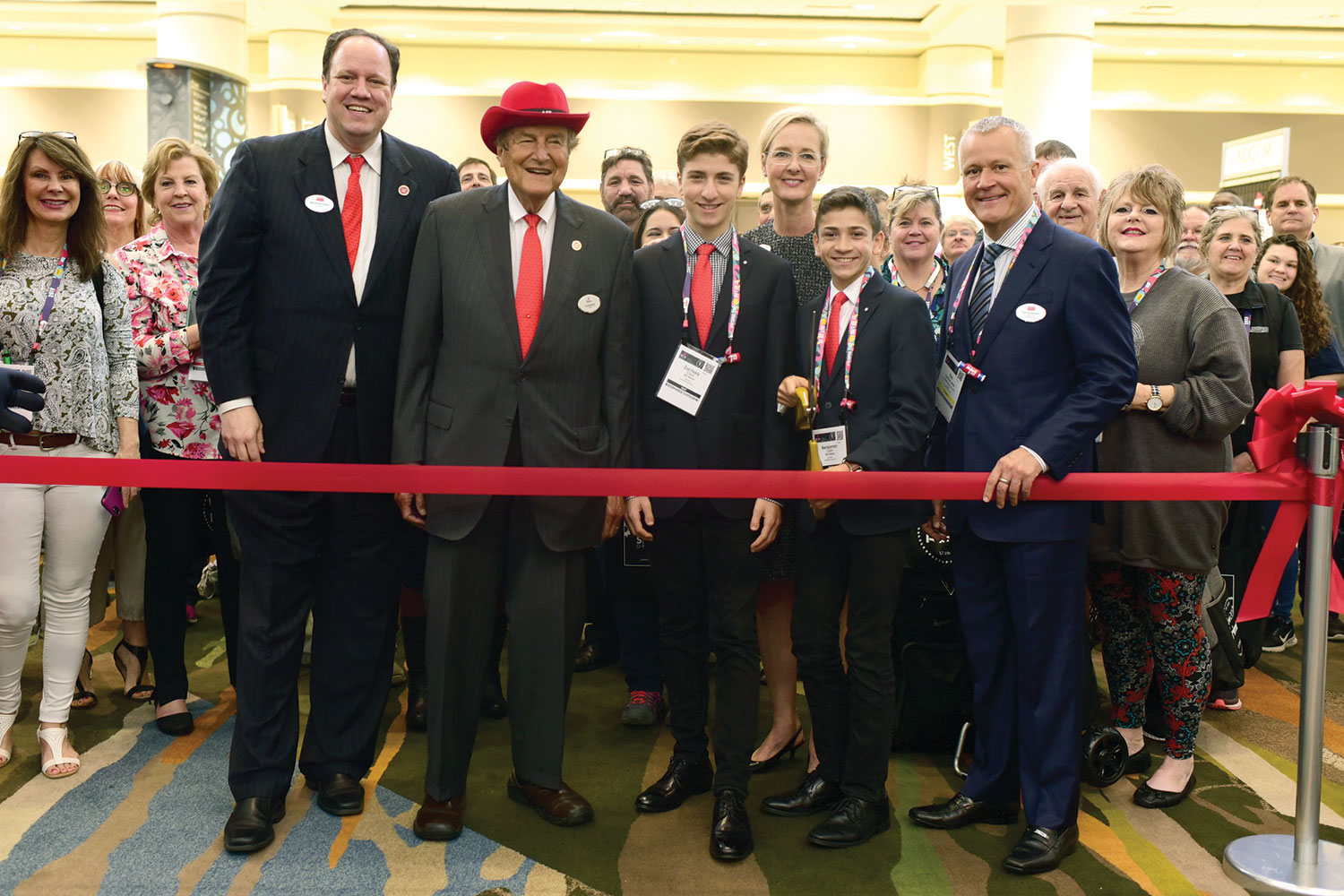
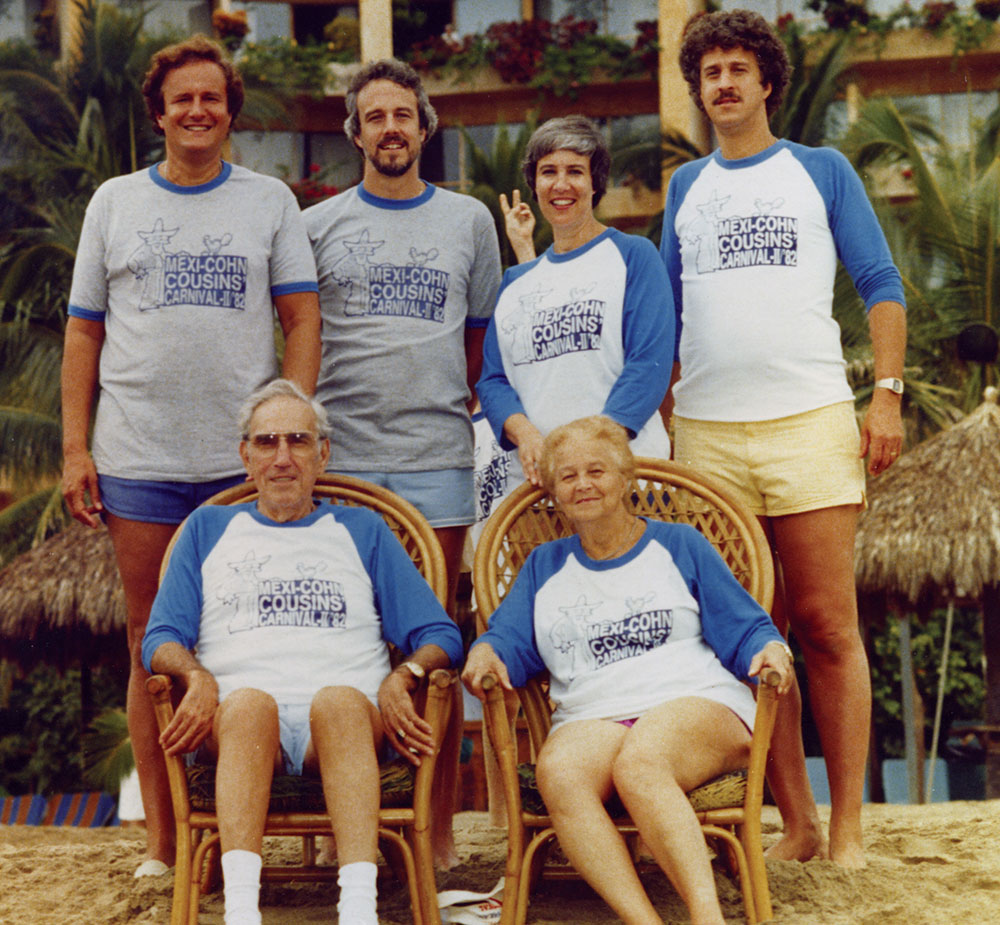
Left picture: Cohn gets ready to open the show floor along with his son, Vice Chairman Matthew Cohn, grandsons, ASI Show VP Rita Ugianskis and ASI’s CEO Tim Andrews
Right picture: Cohn at a family function
C: Do you still talk to Joe Segel today?
NC: Yes. Joe married an employee of ASI named Doris, but she’s since passed away, unfortunately. Joe is very proud of what ASI’s become. We just came out with an “ASI Welcomes You” book for our new employees. I sent it to Joe because I thought he’d be interested in seeing it, and he asked if he could have a few copies to send to his friends. He’s still aware of our industry, but long removed from it.
C: What are some of the things you learned from your dad?
NC: I think about my father a lot. He taught me that your word is your bond – when you shake hands, that’s a deal. I’ve done that on a few occasions and it’s worked out terribly. I wish I could’ve backed away, but I couldn’t because my father taught me that’s not how you do business. I also learned from my father that you have a responsibility to take care of your employees. They’re depending on you for their livelihood. My father taught me how important family is, too. My wife Suzanne and I have five children and two of them, Matthew and Stephanie, are involved in our business. We have 10 grandchildren, and by this summer, eight will have been interns at ASI. Hopefully, after they’re out of school and in the real world, some of them will want to come back. And if they do, they’ll need to apply with HR like anyone else. If they’re hired, they’ll have to work twice as hard as anyone else.
C: What advice do you have for promotional products companies today?
NC: I’d remind them that sometimes a customer might ask for things that aren’t possible. That said, they’re still entrusting you with their business. Whether you’re a supplier or distributor, you need to take wonderful care of that customer as best as you can. And also there are times you have to say goodbye to a customer – but do it in a manner that you can be proud of.
C: If you were starting a distributorship today, what would matter most to you?
NC: We’re fortunately a relationship industry. There’s always going to be somebody that’ll offer a lower price. But if you have a relationship with a customer, you can go to them with ideas. Maybe you’ll see something at a trade show that you know can help a customer promote their business. You’re looking out for them. At the core, this remains the best way to build a business in our industry.
We’re fortunately a relationship industry. There’s always going to be somebody that’ll offer a lower price. But if you have a relationship with a customer, you can go to them with ideas
C: What’s your most prized promotional product?
NC: When I was young, I was in an American Legion program and they gave out pins to the participants. I’ve had that pin since I was 16 years old. So although that’s not the most advanced promotional product, it’s one I most remember because of how important it was to me.
C: How many red hats do you really own?
NC: I don’t really know. I come and pick out whatever fits me at the time for our shows. So maybe by now I’ve had one for every show.
C: What are your goals for ASI going forward?
NC: I hope ASI does several things. First of all, I hope we continue to provide a good home for our employees. I hope we continue to attract good, smart people. We have some extraordinary people. I also hope that our industry keeps growing and that we’re part of helping it. Over the years, we’ve introduced many different things. You might find this to be amazing, but when the fax machine came out it happened about a month before there was a trade show, so we brought two fax machines to the show. We weren’t in the fax machine business, but wanted to demonstrate them to the industry. People would come to our booth, and there was one in one end of the booth and one in the other end, and we said to people, “Here, write something, anything you want, your name, your wife’s name, whatever.” Then we said, “Walk over there.” And they found on that second machine what they had written because the first one had transmitted it. They couldn’t believe it. So just like we did in the old days, I hope we continue to be on the cutting edge of new technology.
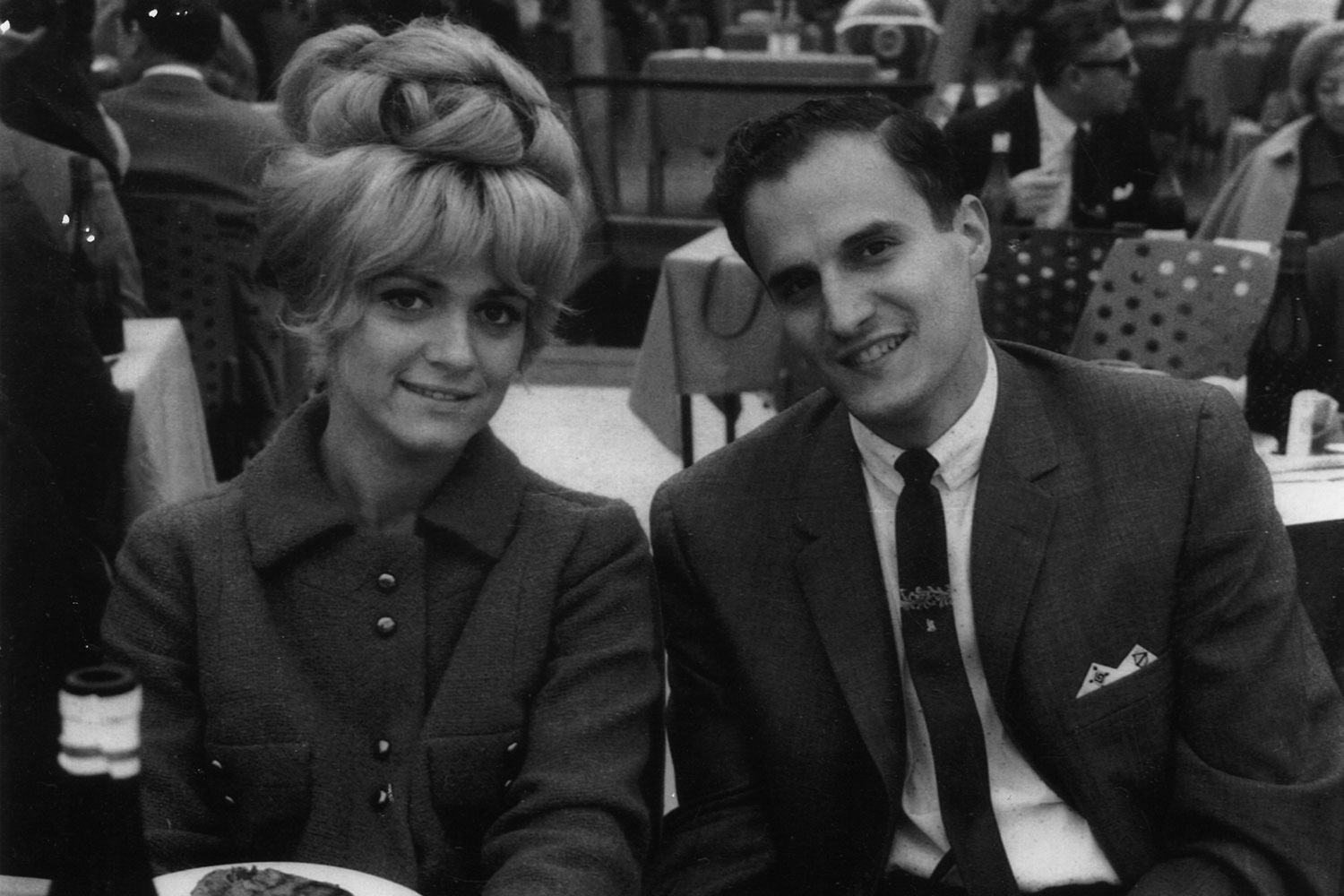
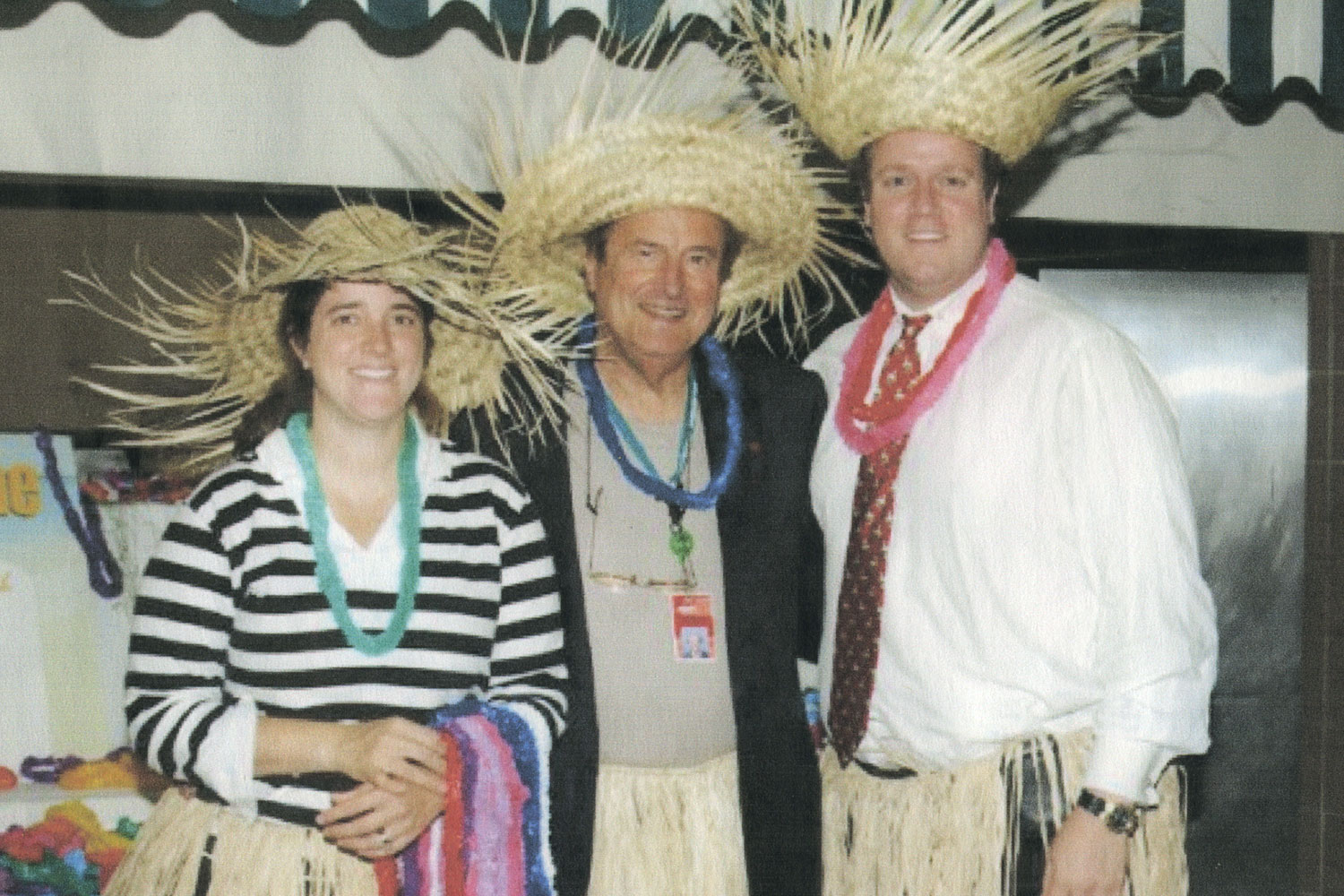
Left picture: Cohn and his wife Suzanne
Right picture: Cohn with his daughter Stephanie Schaeffer and son Matthew Cohn
C: What are some of your predictions for the industry?
NC: Most people think that because the large investment organizations are buying up distributors that there are going to be fewer distributors. But because we’re an easy entry business, I don’t think that’ll be the case. There are new distributors coming from what I call neighboring industries that are going to continue to grow. So even though there are over 25,000 distributors today, I think in five or 10 years, there will still be over 25,000. And yes, there will be a few distributors that will be very, very large by our industry standards. I also think you’ll see some suppliers merge with each other to get bigger so they can offer more lines of products to distributors. I think that as a percentage of advertising, our industry is going to see a greater percentage than it has currently. Why? Super Bowl ads cost five million to put on. I believe more and more companies will realize that there’s a much more intelligent way to spend money – and that’s on promotional products.
C: What would you like your family’s legacy to be in this industry?
NC: I hope a hundred years from today that our family’s still involved with ASI and that ASI is considered to be a pioneer in helping the industry to get organized and go forward. That’s what I’d like.
C: And what about for Counselor?
NC: Well, here’s what I’ll say – I’m confident that the best for Counselor is yet to come.
